Perkins/Metzenberg Lecture
The Perkins/Metzenberg Lecture is a thought-provoking perspective given by a leader in the field of fungal genetics that often includes an historical perspective, thoughts for the future, and some humor. We are pleased to announce the 2026 Perkins/Metzenberg Lecture will be given by Nancy Keller, University of WI, Madison.
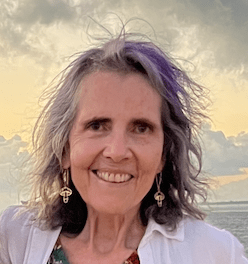
Nancy P. Keller is the Robert L. Metzenberg and Kenneth B. Raper Professor of Mycology in the Departments of Medical Microbiology and Immunology and of Plant Pathology at the University of Wisconsin, Madison. Her research investigates the genetic and molecular foundations of fungal pathogenesis and secondary metabolism. Her lab focuses on Aspergillus and Penicillium species both for their pathogenic prowess and their metabolic richness. Her recent interests include discovery of non-canonical secondary metabolite synthases and their chemical products, the role of secondary metabolites in cross‑kingdom small‑molecule communication and the intrinsic development of antifungal resistance in Aspergillus pathogens.
View Past Award RecipientsThe Fungal Spore Lecture
The Fungal Spore Lecture, new this year to the Fungal Genetics Meeting, highlights work by a mid-career scientist while celebrating the scientific and geographical diversity of the fungal genetics community that gathers for this biennial meeting at Asilomar. We are pleased to announce the inaugural 2026 Fungal Spore Lecture will be given by Matthew C. Fisher, Imperial College London.
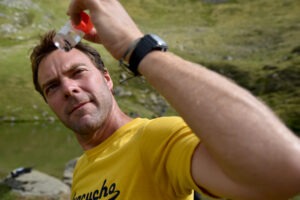
Mat works at the One Health interface to investigate the factors driving emerging patterns of fungal infections across humans, wildlife, and plants. His research group focuses on developing genomic, epidemiological, and experimental models to better understand the drivers of fungal disease and to inform new methods of diagnosis, surveillance, and control.
Chairs’ Choice Plenary Talks
Nomination Deadline: December 4, 2025
The Chairs’ Choice Talks are an opportunity for high impact published work to be highlighted. Nominations (including self-nominations) are invited for Chair’s Choice Talks to be presented in each plenary session. Nominators can self-define “high impact.” Please note: as is the case for all talks, no registration/housing waivers or travel funds will be awarded. Nominations must be submitted by December 4.
To be considered for a Chair’s Choice Talk:
- The work must be published or in press for 2025 or early 2026
- The nominee must agree to attend the entire meeting
- Those invited to present talks in concurrent sessions are not eligible to be considered for a Chair’s Choice Plenary Talk
- Nominees must not have given a plenary talk in the last ten years at a Fungal Genetics Conference
To submit a nomination the information below must be submitted via the online form.
- Nominator’s name, affiliation and email address
- Plenary session to which the nomination should be considered (session descriptions are below).
- A single pdf file containing the following information must be uploaded to the form:
- Nominee’s name, affiliation, email address and url to lab website.
- Brief abstract of the work highlighting its importance (500 word maximum).
- A pdf of the publication or url to website.
Plenary Sesssions
Plenary Session 1: From Signals to Systems: Fungal Cell Regulation and Development
This session will combine the exploration of multilevel regulatory circuits in fungal cells. It will focus on how cellular processes such as growth, division, and differentiation are coordinated by metabolic and signaling pathways. Topics could include transcriptional regulation, post-translational modifications, and cellular responses to environmental stress, and linking these cellular mechanisms to broader developmental and metabolic outcomes.
Chairs: Martine Bassilana, Université Côte d’Azur (France) and Kap-Hoon Han, Woosuk University (Korea)
Speakers
Sophie Martin, University of Geneva (Switzerland)
Oier Etxebeste, University of the Basque Country (Spain)
Deborah Bell-Pedersen, Texas A&M University (US)
Mark Fricker, University of Oxford (United Kingdom)
Johanna Syrjanen, University of Helsinki (Finland)
Plenary Session 2: Dangerous Liaisons: Fungal Pathogens in Host Interactions
Building on previous years’ focus on interactions, this session will delve into the molecular and ecological aspects of how pathogenic fungi interact with their hosts. Emphasis could be on immune evasion strategies, host manipulation, and the role of fungal communities in health and disease.
Chairs: Robert Cramer, Dartmouth Geisel School of Medicine (US) and Eva Stukenbrock, Christian-Albrechts University of Kiel (Germany)
Speakers
Bridget Barker, Northern Arizona University (US)
Armin Djamei, University of Bonn (Germany)
Guilhem Janbon, Institut Pasteur (France)
Matthew C. Fisher, Imperial College London, Fungal SPORE Lecture (United Kingdom)
Yi-Chang Sung, University of California Davis (United States)
Plenary Session 3: Fungal Evolution, Genomics, and Cellular Adaptations
This session will focus on the evolutionary processes shaping fungal genomes, including gene duplication, horizontal gene transfer, and adaptation to diverse environments. Topics could range from phylogenomics to the evolution of pathogenicity and the role of fungal genomes in ecological and environmental adaptation.
Chairs: Amelia Barber, Friedrich Schiller University (Germany) and David Hibbett, Clark University (US)
Speakers
Cathie Aime, Purdue University (US)
Eveline Snelders, Wageningen University (Netherlands)
Isheng Jason Tsai, Academia Sinica (Taiwan)
Emile Gluck-Thaler, University of Wisconsin-Madison (US)
Lluvia Vargas-Gastélum, Oregon State University (United States)
Plenary Session 4: Systems Biology and Ecological Interactions of Fungi
Fungi play key roles in ecosystems, from nutrient cycling to forming complex symbiotic relationships with plants, animals, and other microorganisms. This session will explore how systems biology approaches can help us understand fungal ecology, including fungal communities, functional diversity, and their interactions with the biosphere in both natural and anthropogenic environments.
Chairs: Nina Gunde-Cimerman, University of Ljubljana (Slovenia) and Richard Hamelin, University of British Columbia (Canada)
Speakers
Laura Selbmann, University of Tuscia (Italy)
Sydney Glassman, University of California, Riverside (US)
Laila Partida, Centro de Investigación y de Estudios Avanzados del IPN (Cinvestav) – Irapuato (Mexico)
Benjamin Wolfe, Tufts University (US)
Erin Carr, University of Nebraska Lincoln (United States)
Plenary Session 5: Scientific Journeys & Community Session
This session aims to highlight personal scientific trajectories and the ways in which background, training, mentorship, institutional context, and lived experience influence:
- Research questions and approaches
- Mentorship and lab culture
- Engagement with students, collaborators, and the broader fungal genetics community
- Outreach, education, and community-building efforts
Chair: Javier Tabima Restrepo, Clark University
Speakers
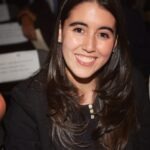
Juliana Gonzalez Tobon, Cornell University
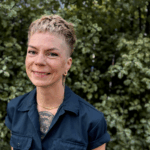
Lotus Lofgren, University of California, Berkeley
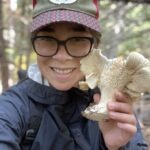
Karena Mafune, University of Washington
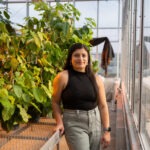
Terry Jarianna Torres Cruz, Purdue University

